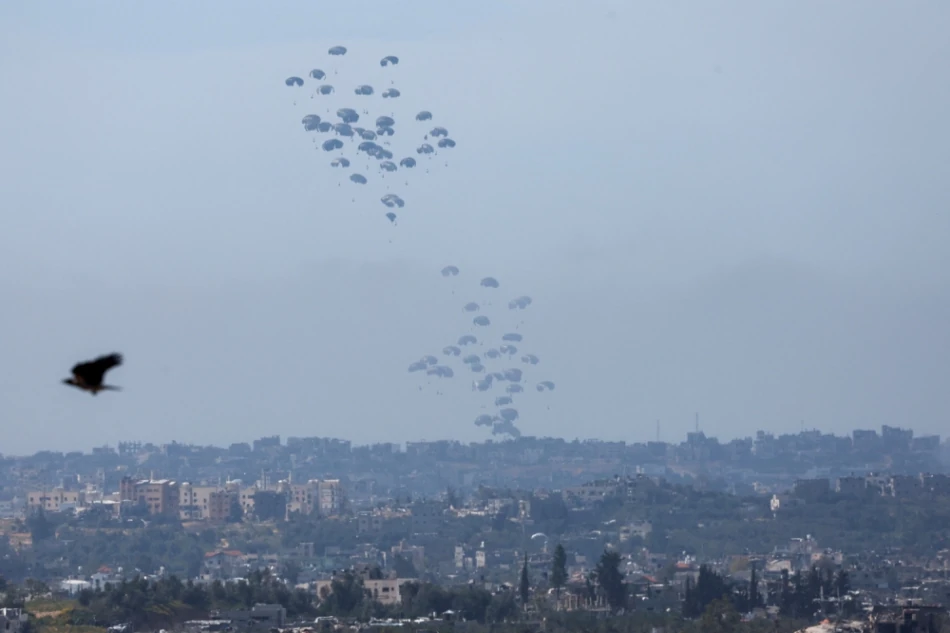
UAE Conducts 65th Airdrop of Aid Supplies to Gaza, Reinforcing Humanitarian Support
UAE Delivers 65th Airdrop to Gaza as International Coalition Expands Relief Operations
The United Arab Emirates has completed its 65th airdrop mission to Gaza as part of Operation "Birds of Goodness," marking a significant milestone in what has become one of the largest sustained humanitarian airlifts in recent Middle Eastern history. The operation, conducted in partnership with Jordan, Germany, and Belgium, delivered over 500 tons of aid while simultaneously coordinating ground convoys, demonstrating the UAE's comprehensive approach to circumventing access restrictions in the besieged territory.
Multi-National Coalition Takes Shape
The inclusion of European partners Germany and Belgium alongside traditional regional ally Jordan signals a broadening international consensus on the humanitarian crisis in Gaza. This coalition approach mirrors successful humanitarian partnerships seen in previous crises, such as the international response to the 2004 Indian Ocean tsunami, where coordinated efforts proved more effective than isolated national initiatives.
The UAE's strategy of building diverse partnerships reflects its broader diplomatic approach of positioning itself as a regional bridge-builder, similar to how it has facilitated dialogue in conflicts across the Middle East and Africa.
Logistics Challenge: Air and Land Coordination
Scale of Operations
With total airdrops now exceeding 3,862 tons, the UAE's operation has reached industrial scale. The simultaneous deployment of 21 ground trucks carrying an additional 500 tons of food aid demonstrates sophisticated logistics coordination that few countries can sustain over extended periods.
Strategic Access Points
The dual approach of air and land delivery addresses a critical challenge in Gaza relief operations: reaching areas inaccessible by traditional ground routes. This mirrors tactics used in conflict zones like Syria and Yemen, where humanitarian actors have had to develop creative solutions to bypass territorial restrictions.
Regional Implications and Precedent
The UAE's sustained commitment sets a precedent for Gulf state humanitarian engagement that extends beyond traditional financial contributions. Unlike previous regional crises where Gulf nations primarily provided funding, the UAE's direct operational involvement suggests a shift toward more hands-on regional leadership.
This approach contrasts with Saudi Arabia's more cautious stance and positions the UAE as the primary Gulf humanitarian actor in Palestinian affairs, potentially influencing future regional diplomatic dynamics.
International Coordination Model
The operation's success in maintaining international partnerships while navigating complex regional sensitivities offers a template for future humanitarian crises. The UAE's ability to coordinate with both European allies and regional partners demonstrates the kind of multilateral approach that international development organizations have long advocated but rarely achieved at this scale.
The sustained nature of these operations – now at 65 missions – indicates institutional commitment rather than symbolic gesture, suggesting the UAE views this humanitarian engagement as integral to its broader regional strategy and international reputation as a reliable partner in crisis response.
Most Viewed News

 Sara Khaled
Sara Khaled






